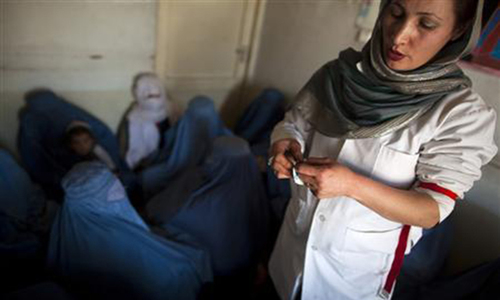The papers recently said that as many as 35 per cent of female medical doctors are unemployed in Pakistan, even though the world’s fifth most populous nation direly needs skilled medical professionals. Gallup Pakistan and PRIDE [Policy Research Innovation, Development & Education] jointly conducted the research.
The study, utilising data from the Pakistan Bureau of Statistics and specifically concentrating on female medical graduates, thoroughly analysed the Labour Force Survey for 2020-21. Similar to India and Bangladesh, Pakistan boasts a notable proportion of female medical and dental graduates. Yet many remain unemployed.
Having recently undergone major surgery at an esteemed local hospital in Karachi, one could witness that the operation room had two males and six females for a surgery requiring immediate and urgent attention. It not only shows the competency level of females but also the stress levels that women can cope with, mentally and emotionally, as compared to men in the surgical wing.
Another case in point: a man looking for a female obgyn doctor for his daughter-in-law’s delivery of a child. The same man refused his own daughter from pursuing the medical field. The irony.
Through a supportive environment, women can pursue their careers while fulfilling family responsibilities
Besides the economic dynamics, the underlying problem of female doctors being unable to pursue the field really begins at home. After house jobs, many are hired by clinics on unpaid internships, a widespread issue in healthcare, leading to frequent doctor protests at press clubs and government institutions.
Societal norms and cultural barriers often limit women’s mobility and employment opportunities, making it difficult to pursue careers in certain regions or specialities. This gender bias can discourage many female doctors from actively seeking employment.
The healthcare sector in Pakistan faces infrastructure and resource constraints, leading to fewer job opportunities. The healthcare system’s capacity to absorb new graduates is limited, exacerbating unemployment issues.
Discrimination and bias within the healthcare industry may lead to female doctors being treated unequally and often overlooked for promotions and job opportunities, contributing to their higher unemployment rates. Moreover, postgraduate programmes come with a significant price tag and are an essential prerequisite for career advancement.
Lastly, and most importantly, the lack of affordable childcare and family support systems can make it challenging for female doctors to balance their professional and personal lives, leading some to delay or forgo their careers altogether.
The doctor bahu syndrome, coupled with the demand for roti-making machines, continues to riddle society because pursuing medical education helps to enhance marriage prospects. As of 2022, one year’s fee at an average private teaching hospital was nearly Rs1.8 million (including enrollment, medical supplies, dental materials, examination equipment, and conveyance). This is what the girl’s parents have invested in only to mother a 30-year-old man she ends up marrying?
Addressing these multifaceted issues, gender bias, healthcare infrastructure, workplace discrimination, and family support, is crucial to reducing the unemployment rate among female medical doctors in Pakistan.
Firstly, implementing targeted affirmative action policies to promote gender equality within the healthcare sector is vital. Introducing legislation that mandates equal opportunities for women in medical institutions is important.
This includes providing incentives or grants for medical institutions to hire and retain female doctors, offering equal opportunities for career advancement, and eliminating gender-based discrimination to meet diversity targets. Establishing mentorship programmes and professional development opportunities specifically designed to help female doctors advance in their careers will also encourage women to continue their medical trajectory.
Investing in expanding and improving healthcare infrastructure will create more job opportunities for female doctors. Building and equipping healthcare facilities can help absorb the surplus of medical professionals. Simultaneously, it also bolsters the nation’s healthcare system.
Offering flexible work arrangements and childcare support for female doctors will enable them to balance their professional and personal lives effectively. Creating a supportive environment where women can pursue their careers while fulfilling family responsibilities is essential.
Do we have daycare facilities in hospitals or anywhere in the corporate sector of Pakistan, barring a few handfuls that one could count on the fingers? While there are daycare centres, the commute to and from the workplace is a task in itself, considering the traffic, petrol prices, and distance, apart from the school pick and drop. It is not sustainable to leave one’s workplace that many times.
Addressing the unemployment of female doctors is not only a matter of healthcare access and gender equality, but it directly impacts the overall societal well-being.
The writer is the head of content at a communications agency. sara.amj@hotmail.co.uk
Published in Dawn, The Business and Finance Weekly, October 2nd, 2023














































Dear visitor, the comments section is undergoing an overhaul and will return soon.